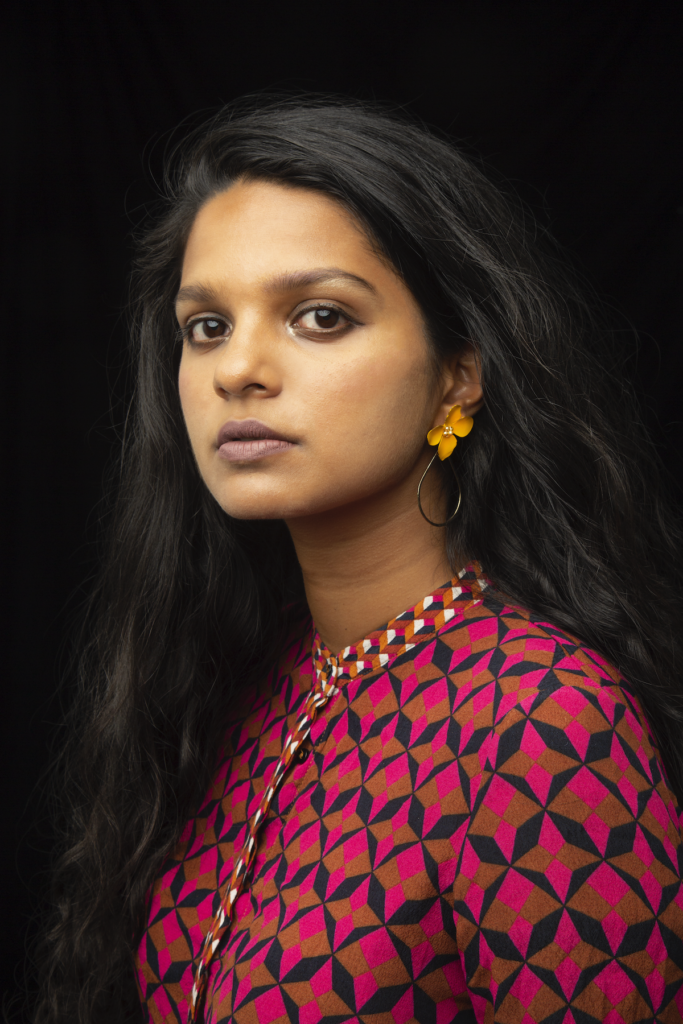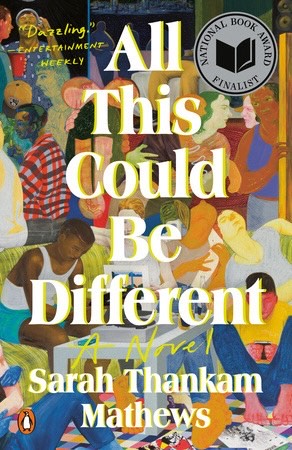Sarah Thankam Mathews’s debut novel, All This Could Be Different, is a bildungsroman about a queer, South Asian immigrant protagonist named Sneha who wants “to say something about love, which for many of us is not separable from the other shit.”
Mathews effectively captures the malaise and melodrama of zigzagging through your early twenties. The novel’s young characters are barely able to comprehend the nature of their own jobs, eager to envision a model of communal living, and stumbling through the false starts and uncertainties that come with romantic relationships.
I talked with Matthews about visions of collectivity, politics on the page, and All This Could Be Different, which was just released in paperback.
Anson Tong: Congrats on the paperback release of All This Could Be Different! A year out, how are you feeling? Is there anything about the experience that has changed over time or that you feel has finally hit you?
Sarah Thankam Mathews: Deep gratitude is my prevailing emotion. I’m so thankful to all the people who helped care for my book and me along this road. I also think there’s a lot about the last year that hasn’t hit me—it’s slowly unspooling over time, and in the meanwhile I’m focusing on what matters the most to me, which is making new work.
AT: The book’s protagonist Sneha often acts selfishly, and a lot of the things she says and does backfire. I’d love to know how you thought about writing a plausibly flawed protagonist and choosing what flaws to reckon with and how. How do you harness the right amount of empathy for your characters?
STM: Who, in our eyes, deserves love and care, deserves support and home, deserves family and belonging? If your answer is “everybody,” then in my eyes, we need to grapple with what finding love and community means for people who are wounded, troubled, or troublesome.
I wrote Sneha as a character who is affectively quite masculine—and invested in some forms of masculinity that might be less than healthy, including her relationship to emotionality. There are reasons for that, ranging from personality to her fairly serious past suffering. I hoped that it might provoke a certain kind of earned empathy in readers to watch someone struggle so hard—and with such good reason—to be vulnerable and intimate and honest.

I see most people as wounded but glorious sites of possibility, and that’s how I wrote Sneha. As for the choice of flaws, I’d say that Sneha’s, like everyone’s, arise largely from personal history and experience—and in her case, inexperience. She’s a 22-year-old queer immigrant and survivor of abuse who is looking to find her way, find her safety, and doesn’t want anyone to pity her. In her first few years in this country she has lived in predominantly white and apolitical environments. It’s 2013 in Wisconsin in one of this country’s most racially segregated cities. That’s some of the context for Sneha as a person, and also not all she is—none of us are only context. But in sum, Sneha is flawed—all the books characters are flawed—because everyone I’ve ever met is flawed. It didn’t occur to me, when writing these characters, to consider “likeability”, a review-economy word I cannot help but see as goofy. I saw Sneha, and see her, as someone to love.
AT: It’s way easier to profess political principles and imagine an idealized world compared to trying to work with/around/in spite of what actually exists. I really appreciated how you approached the character of Tig, who dreams of starting a commune where all their friends and loved ones live, with both realism and empathy. What made you decide on the commune as the aspirational goal that Tig is working towards and hopes to build a community around, that a lot of the characters in the novel discuss and dream of?
STM: I knew I wanted to write a book that started with an individuated, atomized “I” and ended up with a “we.” I was looking for an engine or structure of collectivity. I considered the protest, the union, the mutual aid society, and the commune as options. I ended up choosing found family, a certain person-to-person mutual aid, and the commune as those structures. And I wanted all politics within this novel to be applied and grappled with, to be dialogue-based and embodied in three-dimensional characters. That, to me, was the only way to respects readers—to not go abstract or didactic.
I wanted to leave the book’s ending and Sneha’s final choice ambiguous, or up to the reader in some way. I don’t want to tell people how to read the ending. But I know which option I believe she takes—the entire book in a sense is a prologue to that choice, a movement towards togetherness and safety in other people.
AT: “All this could be different” as a phrase can read glass half-empty or half-full. Was there ever another title in mind for the novel, and do you have any advice for how to stay optimistic when one looks around and thinks everything needs to change (perhaps especially for those of us living through the unmooredness of our twenties)?
STM: I titled the novel, at one point, Milwaukee, and at another point, Sneha. I’m glad I went with All This Could Be Different. Its mix of sorrowing critique and defiant articulation of a truth appealed to me. The truth is simply that the world as we receive it is a made and orchestrated thing. And by that logic it can be remade. We can remake it, with sufficient numbers, sufficient persuasion, sufficient cultural work, sufficient collective political will. Hope is nothing more or less than a practice, a series of acts of giving yourself and those you love to the future. I recommend it to everyone, with a full and loving understanding of why it is so hard.










